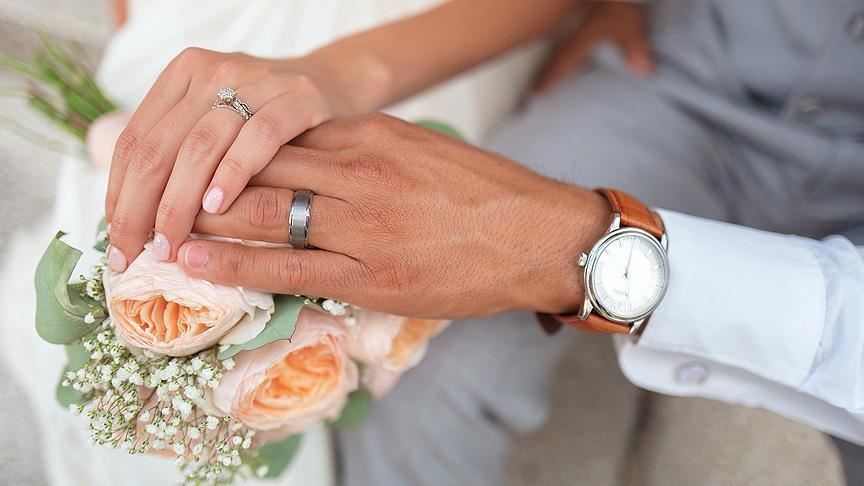Fake marriages with Chinese turn into ordeal for Pakistani brides
Pakistan and China investigating fake marriages of poor Pakistani brides

ISLAMABAD
Rabia* got married to a Chinese man last October at her home in Faisalabad, a northeastern Pakistani city famous for its textile mills.
"My parents were happy and they told me that the Chinese man is rich and handsome and will keep you happy," she told Anadolu Agency over the phone.
But when she reached China two months later, she was shocked.
"In Pakistan, a local pastor who played a role as an agent in my marriage, told my parents that the man has converted to Christianity, has a huge house in China, and will keep your daughter happy. But when I reached there he took me to a small house and confined me to a room," she added.
Rabia is among the hundreds Pakistani women, mostly from the minority Christian community, who Pakistani authorities fear have become victim to a bride trafficking racket run by a Chinese gang.
The men pose as affluent professionals looking for a bride and use the marriage for cross-border human trafficking -- often selling off the vulnerable women in a foreign country to prostitution dens or organ harvesting groups, rights groups claim.
There has been an influx of Chinese nationals in the South Asian nation, with Beijing bringing multi-billion dollars of investment in Pakistan through the China Pakistan Economic Corridor (CPEC), a network of roads and railways under its ambitious Belt and Road initiative. Entire localities in mega-cities have now been rented out by Chinese citizens and restaurants and even a Chinese-language daily have been launched to cater to their needs.
"I faced a tough time there. He had not converted to Christianity, neither was he rich. I returned to Pakistan last month," Rabia added.
She refuses to share any further details about her days spent in China but says she is pregnant.
Saleem Iqbal, an activist for the Christian community in Pakistan, told Anadolu Agency that many women who left their Chinese husbands to return home are pregnant.
"Now what will the women do with these babies after birth," he said, referring to the difficult single-parenting roles they will have to take up.
Last week, Pakistani authorities launched a crackdown against Chinese nationals who are allegedly involved in human trafficking and organ trade.
The Federal Investigation Agency (FIA) in Islamabad has so far arrested 79 Chinese and Pakistani citizens who are suspected of being involved in trafficking using cross-border marriages, local broadcaster Dunya News reported.
An investigation team from Beijing has also arrived in Islamabad to help Pakistani authorities.
CPEC marriages
Photos of a Chinese and Pakistani couple appeared in a local newspaper in November 2017 as the first of what began to be referred by the media as "CPEC marriages".
So far, no official data is available with authorities regarding such marriages in Pakistan, however, Iqbal puts the figure in hundreds.
Banners have been displayed in low-income Christian-majority areas of cities announcing matrimonial ads and incentives for girls who marry into Chinese families.
"Long-live Pakistan-China friendship. Attention: Christian girls from needy, poor and respectable families wanted for marriage in China; all expenses to be borne by groom, no education needed for bride," reads a banner displayed in Youhanabad, one such area in the northeastern city of Lahore.
Such incentives are viewed as a godsend for poor families in a country where marriages are often marked by hefty dowries paid to the groom.
"I removed these banners and asked the community to steer away from these people," Iqbal said, adding that the Chinese men even married disabled and minor girls.
Interviews with members of the affected Christian community suggest the Chinese men gave $4,000-5,000 per bride to their local facilitators who paid $1,000-2,500 to the parents.
Christians, Pakistan's largest religious minority, account for roughly 3% of the country's total population of around 207 million. Most of them reside in Punjab, Pakistan's largest province, where they are mainly involved in the sanitation, nursing and teaching sectors.
However, not all marriages have a sad ending.
Sophia, a Pakistani Christian woman from Lahore, got married to a Chinese engineer who works for the CPEC.
"I am happy with him," she says, adding that she visited China last year and spent a month there.
Rights group urge action
The Human Rights Watch in a report released last month urged authorities in both countries to take action against gangs involved in human trafficking.
"We notice that recently some unlawful matchmaking centers made illegal profits from brokering cross-national marriages," the New York-based watchdog said.
"Both Pakistan and China should take seriously increasing evidence that Pakistani women and girls are at risk of sexual slavery in China and take effective measures to end bride trafficking," it urged.
China has rejected the media reports of forced prostitution and sale of human organs of Pakistani girls.
"Several media reports have fabricated facts and spread rumors. According investigation by our Ministry of Public Security, there is no proof of forced prostitution or sale of human organs of Pakistani women who stay in China after marriage," the Chinese Embassy in Islamabad said in a statement.
Pakistan Foreign Ministry spokesman Mohammad Faisal said they are addressing complaints filed by aggrieved citizens and are collaborating with Chinese authorities in the investigation.
* Name has been changed to protect privacy
Anadolu Agency website contains only a portion of the news stories offered to subscribers in the AA News Broadcasting System (HAS), and in summarized form. Please contact us for subscription options.








